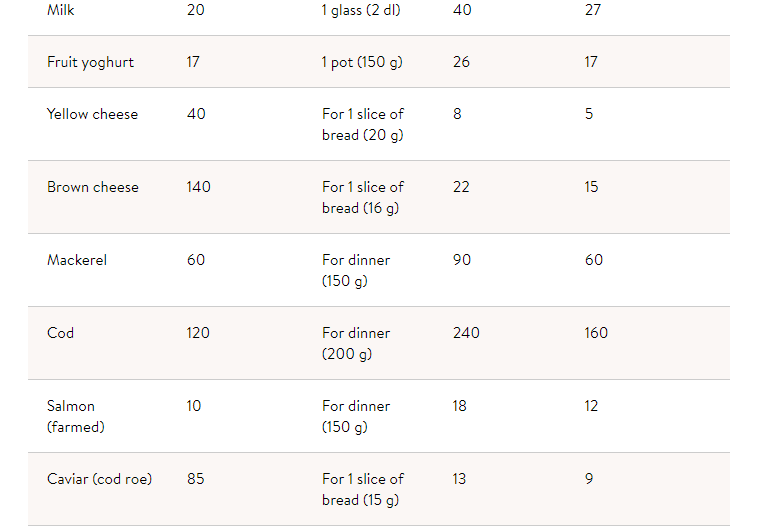Maternal iodine deficiency can affect child development

A low iodine intake among pregnant women may be associated with poor language development, reduced fine motor skills and behavioural problems when the child is three years old. These are findings from the Norwegian Mother and Child Cohort Study (MoBa).
Iodine is a nutrient needed to produce thyroid hormones, which in turn are essential for brain development.
"We see an association between low iodine intake and language, fine motor skills and behaviour, but not with gross motor skills or the age when the child starts walking," says Anne Lise Brantsæter.
Brantsæter is a researcher at the Norwegian Institute of Public Health. She is leading a project where researchers study how iodine intake from food or from supplement use by pregnant women is associated with various neurodevelopmental outcomes in children in MoBa.
"We already know that severe iodine deficiency in pregnancy is harmful to the foetus but it has been uncertain whether milder deficiency can also have negative consequences," continues Brantsæter, one of the authors of the study published in the Journal of Nutrition.
Many pregnant women have a low iodine intake
Iodine intake was calculated based on a detailed food-frequency questionnaire answered mid-pregnancy by MoBa participants. More than half (63 per cent) of pregnant women in MoBa had a lower iodine intake than recommended (175 μg / day is recommended for pregnant women according to the Nordic Nutrition Recommendations) and many had a significantly lower iodine intake. 17 per cent had an intake below half of the recommended values.
A high prevalence of low iodine intake among pregnant women and women of childbearing age in Norway has been confirmed by other studies. Iodine deficiency is also very common worldwide and the results of this research are relevant to other countries.
Iodine supplements do not seem to protect
"In this study we also looked at whether iodine from supplements is protective, but the results do not suggest this. One possible explanation may be that starting to take an iodine supplement when pregnant may be too late to have beneficial effects," explains Brantsæter.

In MoBa, 30 per cent of pregnant women reported using supplements containing iodine.
Small, yet concerning effects
Although the effects on each child may be minor, with such a high proportion of Norwegian pregnant women having a low iodine intake, the results are of concern.
"If the assumptions for our calculations are correct and the associations we see actually reflect causal relationships, then mild to moderate iodine deficiency is significant for the occurrence of behavioural problems and language delays among Norwegian three-year-olds," says Brantsæter.
"In this kind of study, we can never be entirely sure that the relationships we see really represent causal relationships. Nevertheless, there is much to indicate that these findings should be taken seriously. Our findings are supported by those of other studies, but more research is necessary," she adds.
MoBa well-suited to highlight the problem
Major studies are needed to detect such associations. MoBa is particularly suitable because the study has so many participants and because iodine deficiency is widespread among Norwegian women.
"We have valuable data in MoBa that allow us to look at other brain development goals in children. We are working to look at the risk of ADHD and we will also look at more development goals at eight years of age now that the MoBa children are growing older. Then we can see if the relationships we saw at three years persist," says Brantsæter.
Urgent need for action
The findings in this study support the conclusion in the Nutrition Council's 2016 report on iodine status in Norway that there is an urgent need for measures to ensure an adequate iodine intake in Norway. The report emphasises the need to investigate and assess measures to achieve a satisfactory iodine intake.
"The results show that it is important for pregnant women to have an adequate iodine intake before they conceive and that iodine supplements in pregnancy cannot compensate for low iodine intake before pregnancy. However, more research is necessary," concludes Brantsæter.
More information: Marianne H Abel et al. Suboptimal Maternal Iodine Intake Is Associated with Impaired Child Neurodevelopment at 3 Years of Age in the Norwegian Mother and Child Cohort Study, The Journal of Nutrition (2017). DOI: 10.3945/jn.117.250456


















